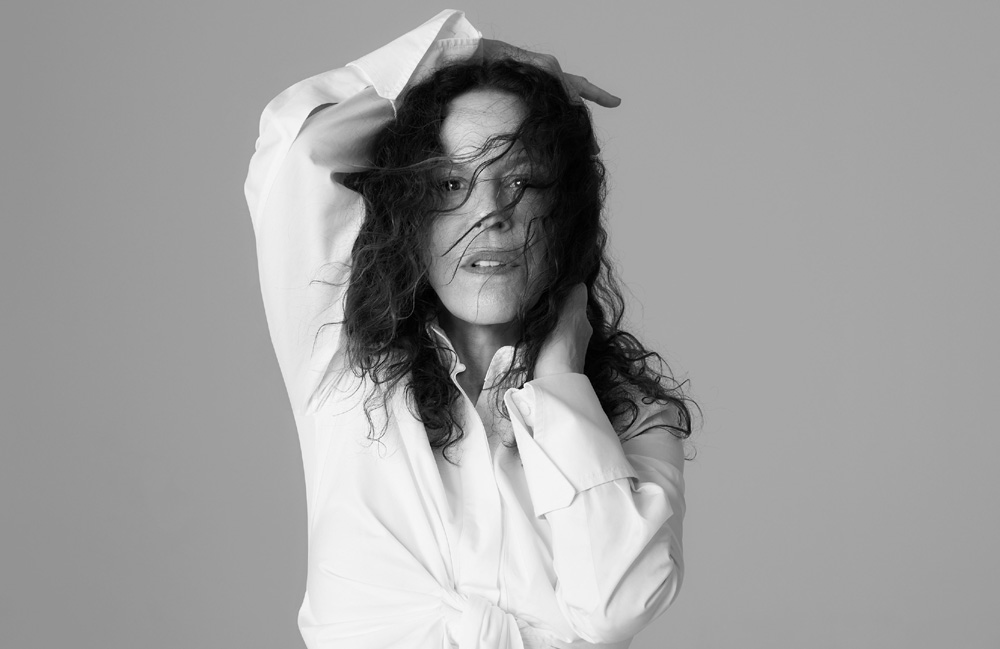Modern bossa nova pioneer Bebel Gilberto pays tribute to her legendary father, who died four years ago, on the album “João”.

Bebel Gilberto is one of Brazil’s best-known singers and has been nominated for multiple Grammy Awards. With her sensual, velvet voice, she has been enchanting fans and critics since her debut EP in 1986. With her album “Tanto Tempo”, the Brazilian siren achieved her breakthrough in 2000 and conquered clubs worldwide with her Electronic Bossa Nova. “Tanto Tempo” was a milestone and became the best-selling Brazilian album in the history of the US charts (over 1 million copies sold). The album with the remixes – by Rae & Christian, Peter Kruder, Chateau Flight, 4hero or the Trüby Trio – was also very successful afterwards. Both paved the way for her world career and made her a superstar.
A Family Affair
At 57, Bebel Gilberto looks back on a musical life that began with her birth. She may have been born in New York in 1966, but she comes from one of Brazil’s most famous musical families: her father is bossa nova inventor João Gilberto, her mother was the singer and composer Miúcha, and her uncle is Brazil legend Chico Buarque.
She remembers that even as a little girl she watched her father play the guitar all the time at home, and sometimes heard him sing. Sometimes she found it boring at the time because her parents were always making music or recording instead of talking or playing with her. João Gilberto wrote the sentimental song “Valsa” for his then six-year-old daughter Bebel in 1973, when she had already moved to her grandmother in Brazil and her parents still lived in New York. At the age of ten, she already performed together with her mother Miùcha and the American jazz saxophonist Stan Getz at Carnegie Hall in New York. At that time, she had to stand in for her father, who was known for being notoriously late or not showing up at all when he had concerts.
Bossa nova
Bebel wants João Gilberto’s songs to be available, to live on and be discovered by future generations. To this end, she has rearranged all the songs, mostly singing them not quite as soft as cotton wool as he did and with a somewhat stronger presence, but otherwise just as sensual and lightly floating above the ground as her father. Both have a lot in common. “Adeus América”, the second single of the album, is a kind of exile hymn with a strong homesickness character, which has as much to do with the father’s life as with the daughter’s, since both have left the USA again – after many years – for Brazil.
Love letters
“João” is the eighth album by Bebel Gilberto, it is a tribute album to her father, she herself even calls it a love letter to him. The eleven songs are either written by him or classics like “Ela é Carioca”, which became famous in his interpretations. Since her youth, the singer has never sung her father’s songs again, more than that, she already disliked the term bossa nova and almost got angry when people sorted her music into that pigeonhole. “It meant life to my father, it’s a handicap to me,” she said in an interview. It was only after her father’s death in 2019 that she was able to start listening to and singing his songs. But what she wanted to avoid at all costs was sounding like him. Since her father, who had become a myth throughout his life, spent the last 30 years of his life in self-isolation, lonely and full of phobias and in a permanent clash with his record companies, she also wants to ensure the survival of his work with her album.
“I’m finally covering my father’s songs, showing the music that really impacted me,” bEBEL gILBERTO tells
Father and Daughter
Bebel wants João Gilberto’s songs to be available, to live on and be discovered by future generations. To this end, she has rearranged all the songs, mostly singing them not quite as soft as cotton wool as he did and with a somewhat stronger presence, but otherwise just as sensual and lightly floating above the ground as her father. Both have a lot in common. “Adeus América”, the second single on the album, is a kind of exile hymn with a strong homesickness character, which has as much to do with the father’s life as with the daughter’s, since both have left the USA again – after many years – for Brazil.
“É Preciso Perdoar” is one of the most beautiful songs of the album, and maybe my favorite song ever. My father also recorded it on that same White Album and it’s been recorded by Cesária Évora, (Ryuichi Sakamoto and Caetano Veloso) on the Red Hot & Rio album that got so famous, (where) David Byrne also participated. But the words reflect the state of mind that I am currently in.
“João” is a tender, mostly melancholic and intense album, marked by the singer’s hypnotic, sensual voice and the great playing of her backing musicians. It is the perfect companion to late summer evenings.
NMR (photo: press Bebel Gilberto)
















